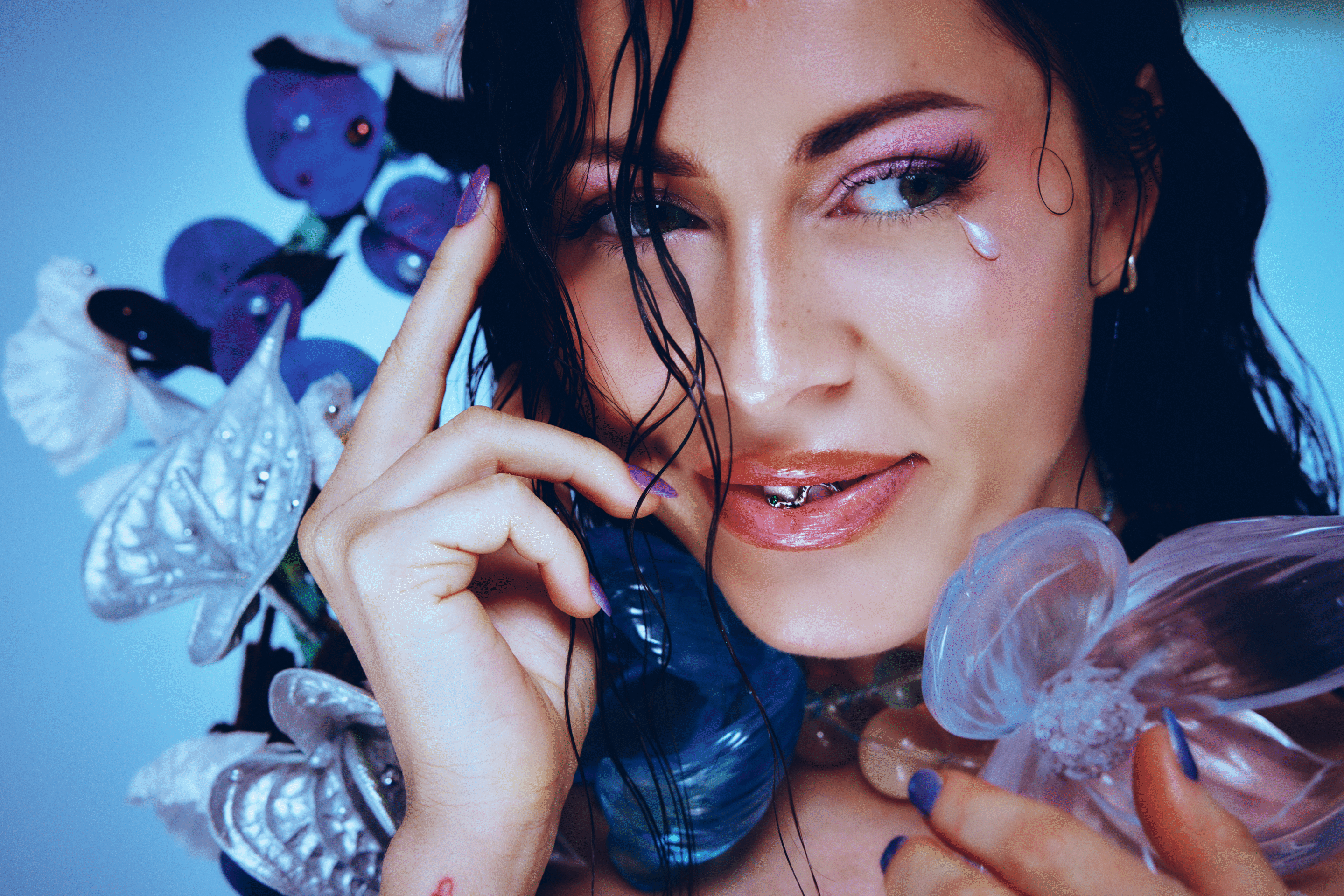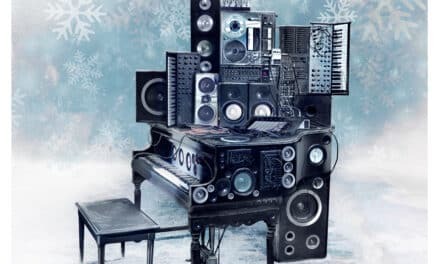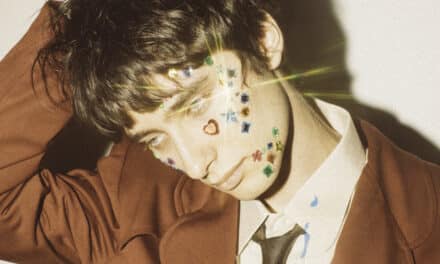With Monsters & Masochists, Empara Mi doesn’t just release an album — she unleashes a world. The visionary artist, known for her cinematic soundscapes and poetic rawness, returns with her most daring project yet: a concept album that plunges headfirst into love, loss, and the brutal beauty of healing.
Having already amassed over 50 million global streams and 5.6 million YouTube views, Empara Mi has never been one to follow formula. Her debut Suitcase Full of Sins (2020) became a cult favorite during the pandemic — its songs like Blood in the Water and Ditch soundtracking hit series such as Ginny & Georgia and Behind Her Eyes. But with Monsters & Masochists, she raises the stakes entirely, creating not just an album, but a cinematic experience — a visceral, multi-sensory story told through sound, visuals, and emotional truth.
“Monsters & Masochists is the most honest thing I’ve ever made,” she says. “It’s about transformation — the kind that only happens when you’ve lived through both heaven and hell.”
The record unfolds like a map of the human psyche, tracing a non-linear journey through grief, desire, rage, and rebirth. Each track serves as a chapter: Cocaine Cassanova is a haunting ballad that exposes manipulation’s fog, while I Lied smolders with vengeance and control — its sinister basslines and cutting lyrics (“After I’m done with you I’m / Taking you out for a drive / Dead of the night / You could get buried alive”) forming a delicious contrast to the album’s more tender moments.
Songs like Shotgun and Sucker for Love ignite the album’s core, balancing empowerment and addiction with seductive, lyrical precision. Then comes Hurt Like Me — a hidden anthem that blooms from fragile intimacy into an explosive crescendo, showcasing the vocal force that makes Empara Mi one of the most dynamic performers of her generation.
Finally, she closes the saga with Dragged Me Back to Hell — a Bond-worthy finale that pairs smoky vocals and jazz-like piano with an air of cinematic closure. “It’s the sound of surviving your own story,” she reflects.
Recorded with the Prague Philharmonic Orchestra and merging nostalgic rock, electronic grit, and orchestral grandeur, Monsters & Masochists is both vast and deeply personal. It’s the sound of confronting your demons — and dancing with them until they bow.
From earning accolades at Cannes World Film Festival for I Can’t, to topping TikTok and iTunes charts, Empara Mi continues to blur the line between music and mythology. Her artistry feels like a ritual — one that demands both pain and beauty in equal measure.
As the album unfolds, one truth becomes clear: Empara Mi isn’t afraid of the monsters. She became one — and made it sing.
“Monsters & Masochists” feels less like an album and more like a cinematic confession. What emotion or image started it all?
That’s such a lovely way to put it, because that’s exactly how it felt to make. Every song I write kind of starts as a confession, I’m either asking for some sort of absolution or just saying something I would never usually say out loud. The first track I wrote for this album was about five years ago, and it came from a really sad memory. That ended up being the seed for everything else and then it grew into this whole world that became Monsters & Masochists which presented itself as a collection of diary entries of the highest and lowest moments of my life so far.
You’ve described this project as “the most honest thing you’ve ever made.” What truth were you most afraid to tell yourself while creating it?
Probably that I wasn’t as healed as I thought I was. I went into this album thinking I was writing about the past, but halfway through I realised I was still very much the present. It forced me to face parts of myself I’d been avoiding so it brought up a lot of anger and shame in a way. It’s amazing therapy but you do have to keep reliving things again and again every time you hear it. There was a lot of looking in the mirror.
The record moves between tenderness and danger — soul-stirring ballads and shadowy synths. How do you navigate those extremes emotionally when you write?
I think that’s just who I am, I’ve never really lived in the middle. When I write, I swing between being really vulnerable and really defiant, and somehow those two extremes feel connected. You can ask my husband, some days I’m the angel, some days I’m a beast, it’s just how my love, grief, or anger chooses to show itself that day. Writing is the only place I can let them talk to each other and I just follow wherever the feeling leads, even if it pulls me somewhere uncomfortable which it usually does but that’s where the truth usually is.
You’ve called this album a “map of non-linear healing.” What does healing sound like to you — chaos, silence, or something in between?
I think healing sounds different every day. Some days it’s total erraticness, other days it’s silence, but mostly it’s just movement. It’s the sound of trying again, even when everything in your body is fighting against it. I think if i didn’t write this album i probably would have spent a lot more time standing still, it gave me the push and purpose i needed to keep moving.
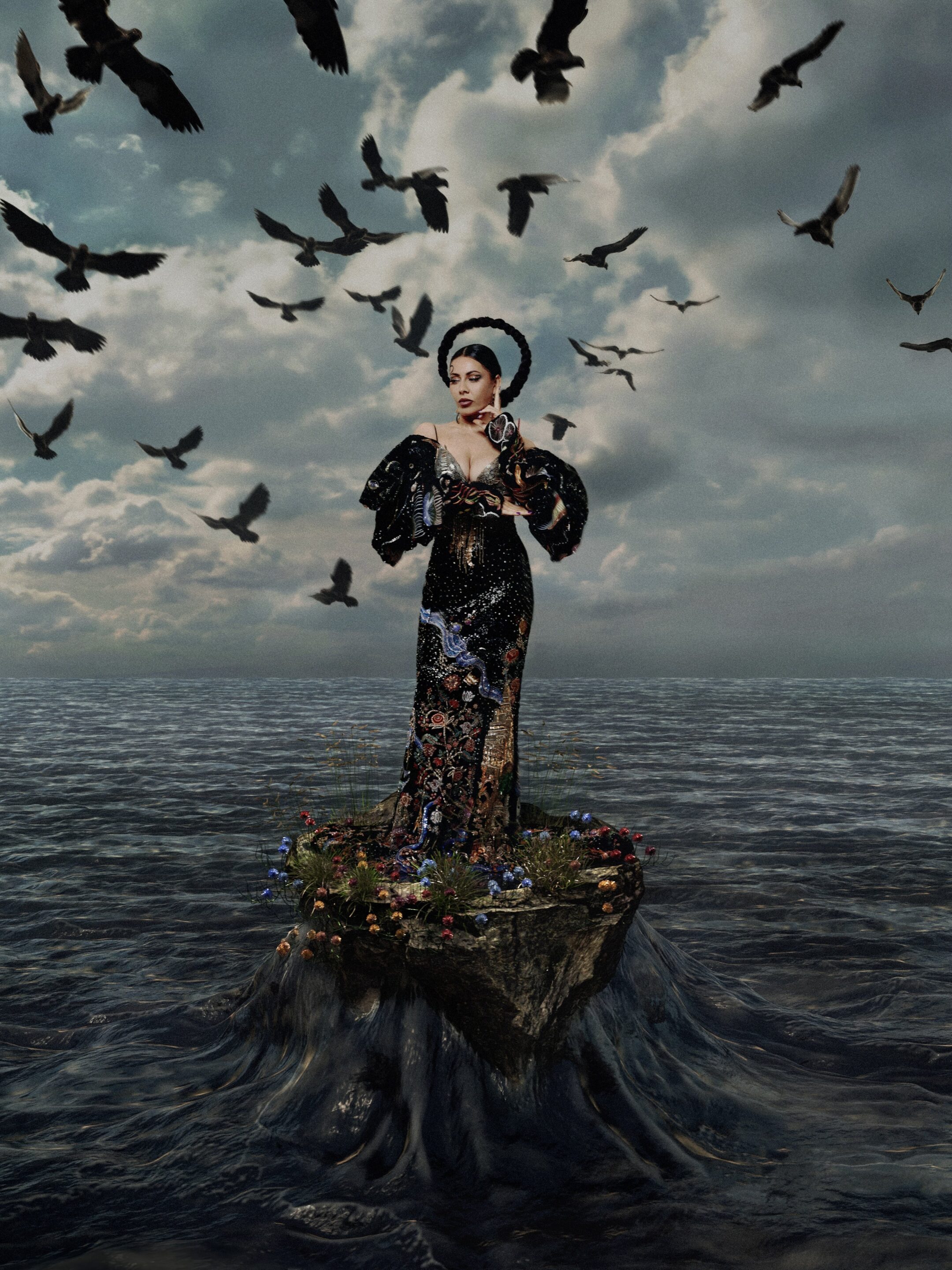
Songs like “Cocaine Cassanova” and “I Lied” feel like they were written from two different planets of feeling. Do you see them as characters in the same universe or as fragments of yourself?
Haha i know, they literally couldn’t be any more different. I feel like the extremes are born out of each other so somehow to me they definitely live in the same universe and both feel equally me. I’ve been both those people, the person who wants to be loved and the other that wants to burn everything down. Cocaine Casanova in a way is far darker of a subject than I lied, it was me romanticising a bad situation, and I Lied is me taking back control so it’s all about perspective.
Your visuals are stunning — cinematic, theatrical, often surreal. When you imagine a song, do you hear it first or see it first?
Thank you! It’s always both for me, I don’t really separate the sound from the image. When a song starts forming, I can already see the world it lives in. It’s like scoring a film that doesn’t exist yet, and I’m trying to make the music and visuals catch up to each other. I think that’s why I love what I’m doing at the moment, writing music to picture for a series. It comes more naturally to me than i thought it would maybe because i’ve accidentally been doing it all along.
You’ve earned awards in Berlin, LA, and even Cannes for your videos. What’s the secret language between your music and your visuals?
I think they speak to each other in the sense that they complete the full picture. I try not to be overly descriptive in my lyrics so I want the visuals to finish the sentence, one is what I feel, the other is what it looks like to feel it.
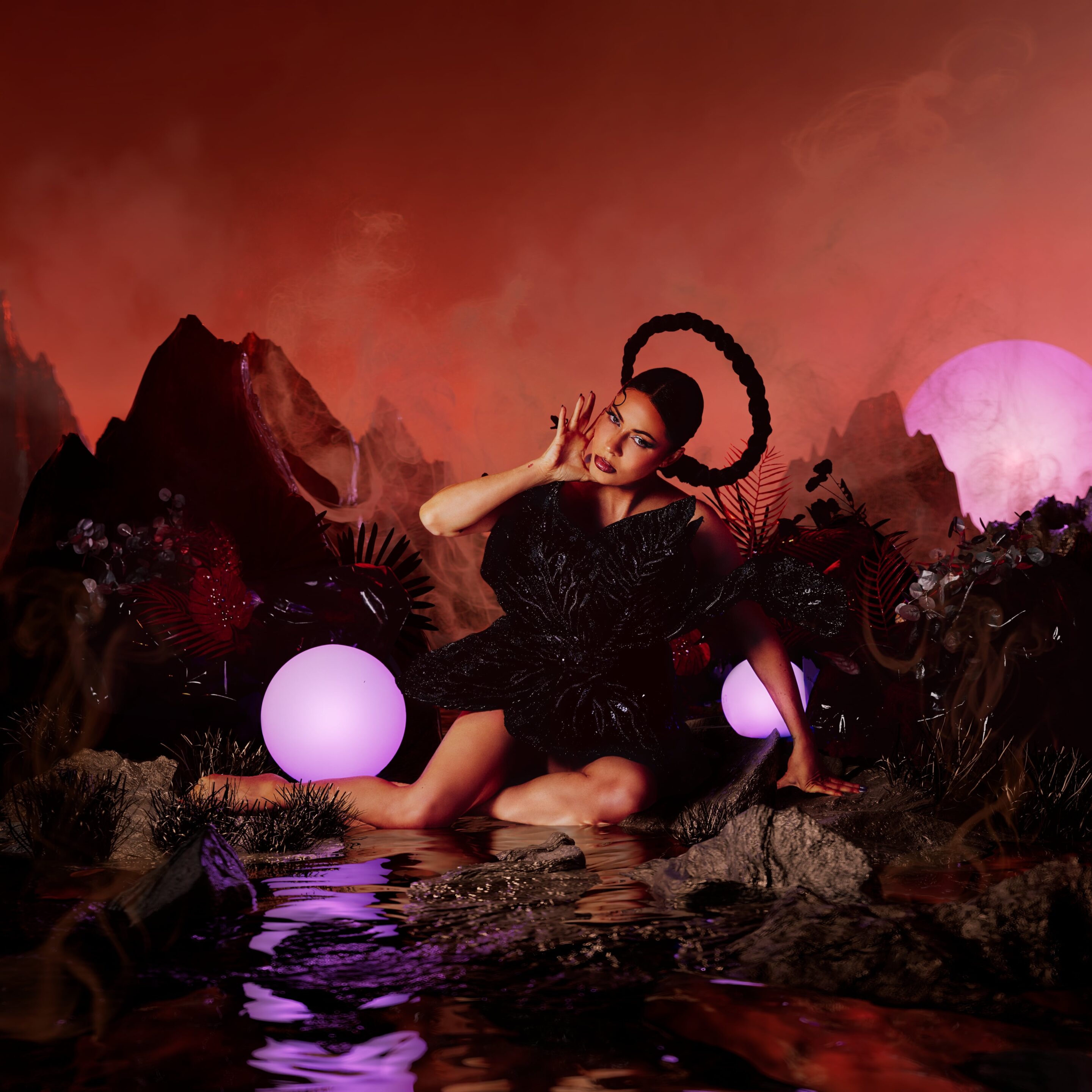
“Dragged Me Back To Hell” closes the album with a Bond-esque grandeur. Why end with that note — was it closure or surrender?
A bit of both, honestly. Dragged Me Back To Hell always felt like the credits rolling and the car driving off into the sunset but you don’t know where it’s heading. I also wanted to end on the song I finished last as I loved my production on it and although it’s the finale of the album it symbolises the beginning of an awakening for me in terms of my own autonomy as a writer & producer so in that sense it’s very much the beginning of the next chapter.
Your sound carries pieces of hip-hop, opera, electronica, and film score. What does freedom in genre mean to you?
For me, freedom in genre just means I get to follow emotion instead of rules set upon me by anyone else. I never sit down thinking, this needs to sound pop or this needs to sound cinematic. I just chase whatever feeling wants to come out, and sometimes that’s strings, sometimes it’s 808s, sometimes it’s everything in between. Also the more I produce the more I like to experiment, maybe one day my production will all sound the same… probably not though.
There’s a palpable theme of transformation in your work — from Suitcase Full of Sins to Monsters & Masochists. What part of yourself did you have to leave behind to make this one?
I think I had to bury the part of myself that still wanted to be understood and liked. The old me was always performing subconsciously for someone. Monsters & Masochists isn’t about showing my strength in many ways but also being brave by showing my weakness.
If Monsters & Masochists were a film, what would its final scene look like?
Thelma and Louise. Driving off the edge of the cliff, tragic but beautiful.
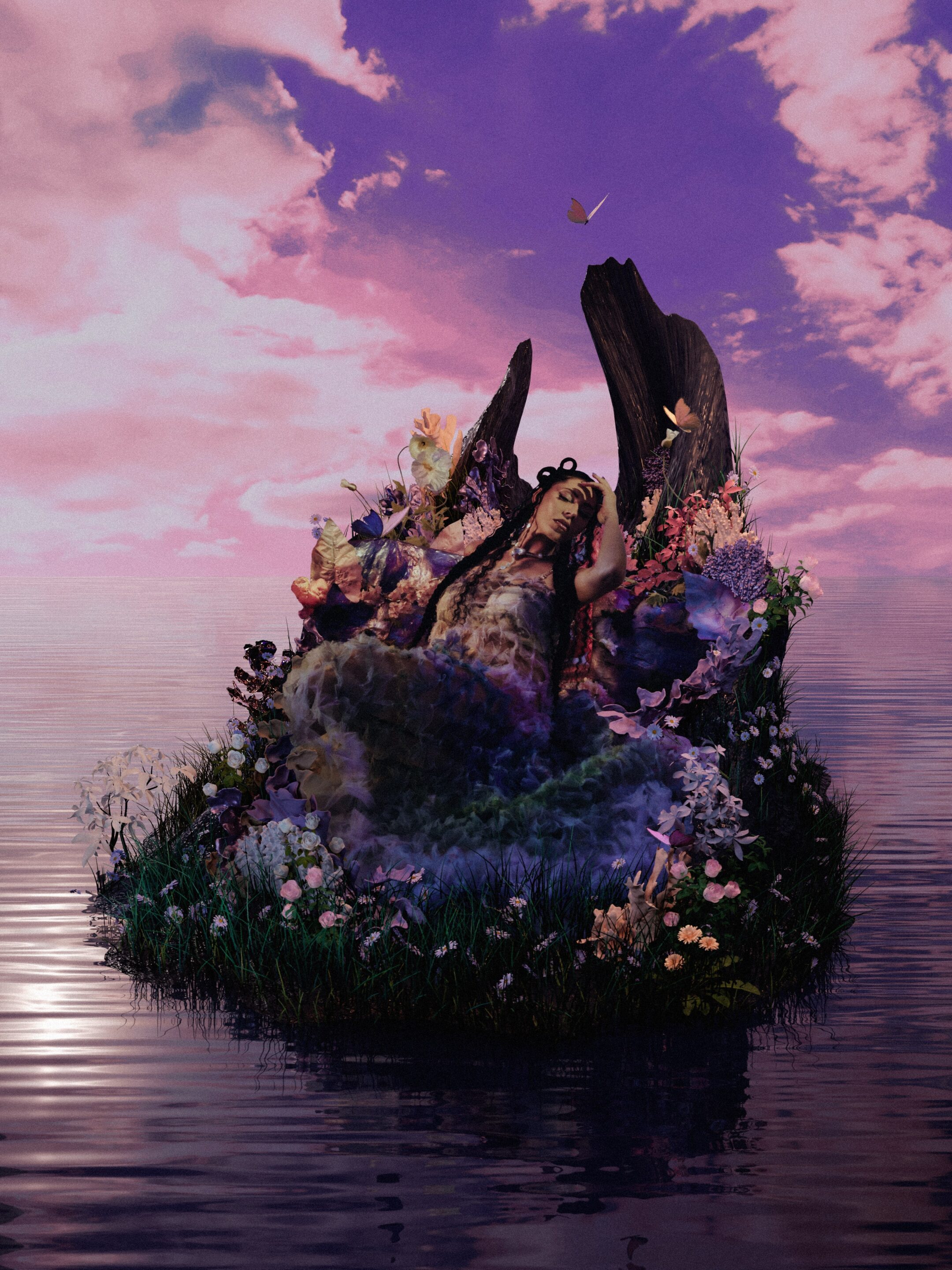
You’ve worked with orchestras, collaborated with producers, and built sonic worlds — when does creation feel most solitary for you?
To be honest, it always feels a little solitary. I love to write alone, even if I start an idea with someone, I usually end up back in my studio writing the lyrics and melodies by myself. That’s where it feels most honest to me. It’s not that I don’t value collaboration; I just need that quiet space to process what I’m actually trying to say. A lot of these stories felt too personal to have anyone else’s words in my mouth. I like being a little hermit in my own world, though who knows, maybe one day I’ll become the kind of artist who thrives in a room full of people writing my thoughts. I’m also lucky to have my husband as a great soundboard, especially for the songs I create entirely on my own. When you’re super close to something it’s great to be able to play him something and hear it through someone else’s ears.
You’ve said the album is about “embracing the chaos within.” Do you think artists ever truly make peace with their chaos, or just learn to dance with it?
I think artistic people in general spend their whole lives learning how to dance with the parts of themselves that scare them the most.. Dragged Me Back to Hell is literally in ¾ because I wanted it to feel like a dance, like I was waltzing with the devil, which for me is just a metaphor for the relationship I have with my own demons. I don’t think I ever want to make peace with those darker parts of myself, they’re where the best songs come from.
The album title itself carries duality — monsters and masochists, harm and hunger. Where do you find beauty in destruction?
I’ve always found beauty in the things that break us open because every time something in my life has fallen apart, it’s somehow made room for something better, I’m not sure how but it always has so i always carry a bit of hope. That’s why Monsters & Masochists, as well as being about the two sides of the coin, it’s also about acceptance and embracing that you can be everything all at once and that’s ok.
After five years in the making, you said it “finally feels like the beginning.” What does that new beginning look like for Empara Mi?
It feels like I finally know who I am as an artist, this album has taught me that. For a long time I didn’t feel like I was starting again, I felt like I was starting way behind the start line. Now I don’t feel like that, I feel completely in my own lane with no pressure or desire to compete. Monsters & Masochists feels like the closing of one chapter and the real beginning of another, where I can create from a place of freedom instead of fear. I think this is the first time I’ve felt happy with who I am and what I have to give.

